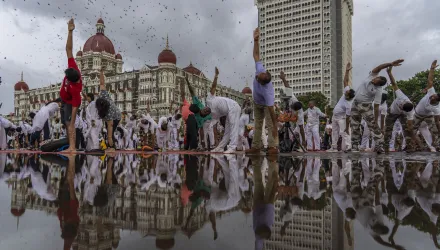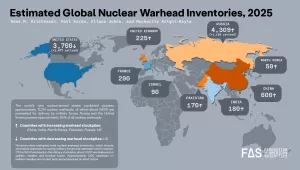India's Security-Driven Proliferation Drift in the 1960s
Contrary to conventional wisdom, this presentation will offer a security-based argument for India’s nuclear weapons program. Based on U.S., Indian, and French historical documents from the 1960s, Jayita Sarkar, Stanton Nuclear Security Fellow, argues that New Delhi opted for the “Plowshare loophole” as a cost-effective way to enter the nuclear club. Its regional insecurities vis-à-vis Pakistan and nuclear China, and its mistrust of the United States contributed to its proliferation drift, despite its active involvement in the negotiations for the NPT.



